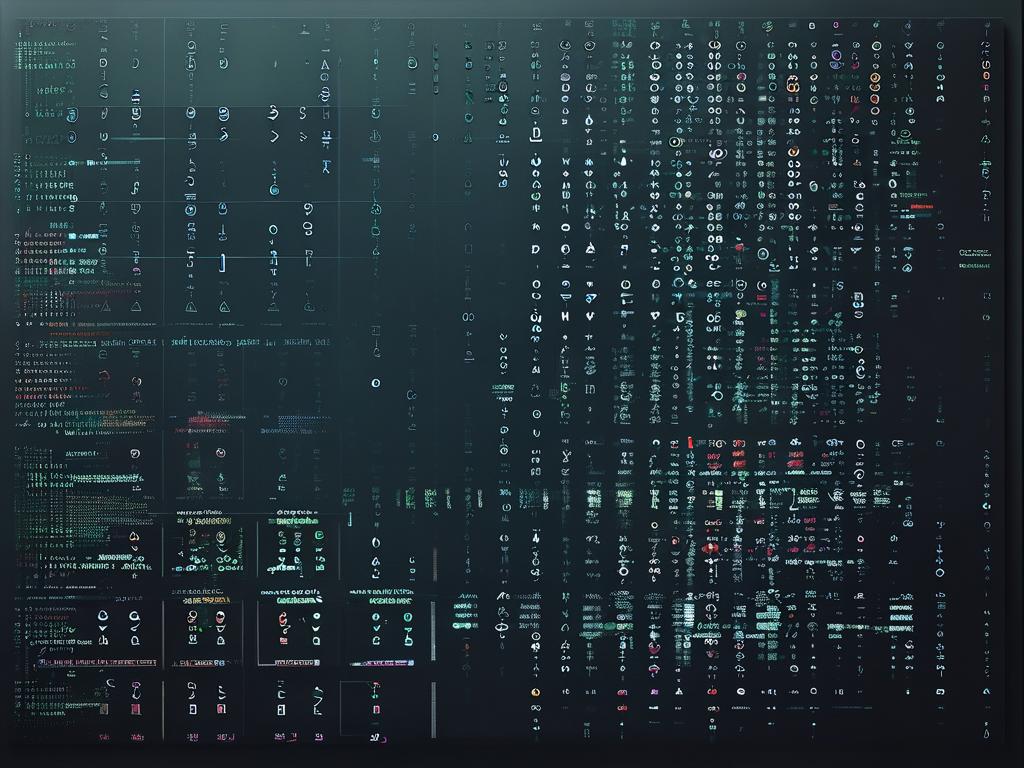In modern software development environments, code completion has become an indispensable feature that accelerates programming workflows. This article explores the fundamental implementation strategies of code completion systems within compiler architecture, focusing on practical approaches rather than theoretical abstractions.

Lexical Analysis Foundations
The initial phase of code completion relies on lexical analysis components. Tokenizers must maintain partial parsing states to handle incomplete code segments. Consider this simplified lexical analyzer snippet:
def tokenize_partial(code):
tokens = []
buffer = ''
for char in code:
if char.isalnum() or char == '_':
buffer += char
else:
if buffer:
tokens.append(('IDENT', buffer))
buffer = ''
if not char.isspace():
tokens.append((SYMBOLS[char], char))
return tokens
This modified tokenizer preserves intermediate identifiers even when encountering unterminated expressions, enabling context-aware suggestions.
Abstract Syntax Tree (AST) Manipulation
Modern code completion systems maintain dynamic AST representations that update incrementally. The compiler's parser must implement recovery strategies for incomplete syntax structures. An effective approach involves creating placeholder nodes for missing elements:
struct ASTNode {
enum NodeType type;
union {
struct Identifier *ident;
struct FunctionCall *call;
struct Placeholder *ph;
};
};
These placeholder markers allow the system to determine valid completion points while preserving structural integrity during partial input parsing.
Semantic Analysis Integration
Type inference engines play crucial roles in filtering suggestion candidates. A robust implementation combines static type information with dynamic context analysis:
class CompletionContext {
Map<String, Type> variables;
List<FunctionSignature> functions;
Type currentReturnType;
List<String> filterSuggestions(String prefix) {
return Stream.concat(
variables.keySet().stream(),
functions.stream().map(f -> f.name)
).filter(name -> name.startsWith(prefix))
.collect(Collectors.toList());
}
}
This contextual filtering mechanism ensures suggestions align with the current scope's type constraints and visibility rules.
Pattern Recognition and Heuristics
Effective code completion integrates statistical models trained on code repositories. Hybrid systems combine rule-based compiler logic with machine learning predictions:
- Maintain n-gram frequency tables for API usage patterns
- Track common type conversion sequences
- Analyze project-specific coding conventions
Error Recovery Strategies
Compilers must implement sophisticated error recovery mechanisms to handle incomplete code states. The following recovery techniques prove particularly useful:
- Nested scope backtracking
- Token insertion simulations
- Symbol table approximation
Performance Optimization
Real-time code completion demands strict performance guarantees. Key optimization strategies include:
- Incremental re-parsing algorithms
- AST differencing techniques
- Background thread analysis
- Caching of suggestion results
Implementation Challenges
Developers face multiple obstacles when integrating code completion into compilers:
- Balancing accuracy with latency requirements
- Handling language-specific syntax ambiguities
- Maintaining consistency across partial edits
- Managing memory constraints for large codebases
Practical Implementation Steps
A minimal viable code completion system can be structured as follows:
- Modified lexical analyzer with partial input support
- Error-tolerant parser with placeholder injection
- Context-aware symbol table manager
- Suggestion ranking engine
Evaluation Metrics
Quality assessment should consider multiple dimensions:
- Suggestion relevance score
- Latency percentiles
- Memory footprint
- Context detection accuracy
- Multi-cursor support capability
Future Directions
Emerging trends in compiler-assisted code completion include:
- Deep learning-based pattern prediction
- Real-time collaborative editing support
- Cross-language type inference
- Hardware-accelerated analysis
The implementation of code completion features requires deep integration with compiler internals while maintaining editor responsiveness. By combining traditional parsing techniques with modern machine learning approaches, developers can create intelligent assistance systems that significantly enhance programmer productivity without compromising compilation accuracy.









